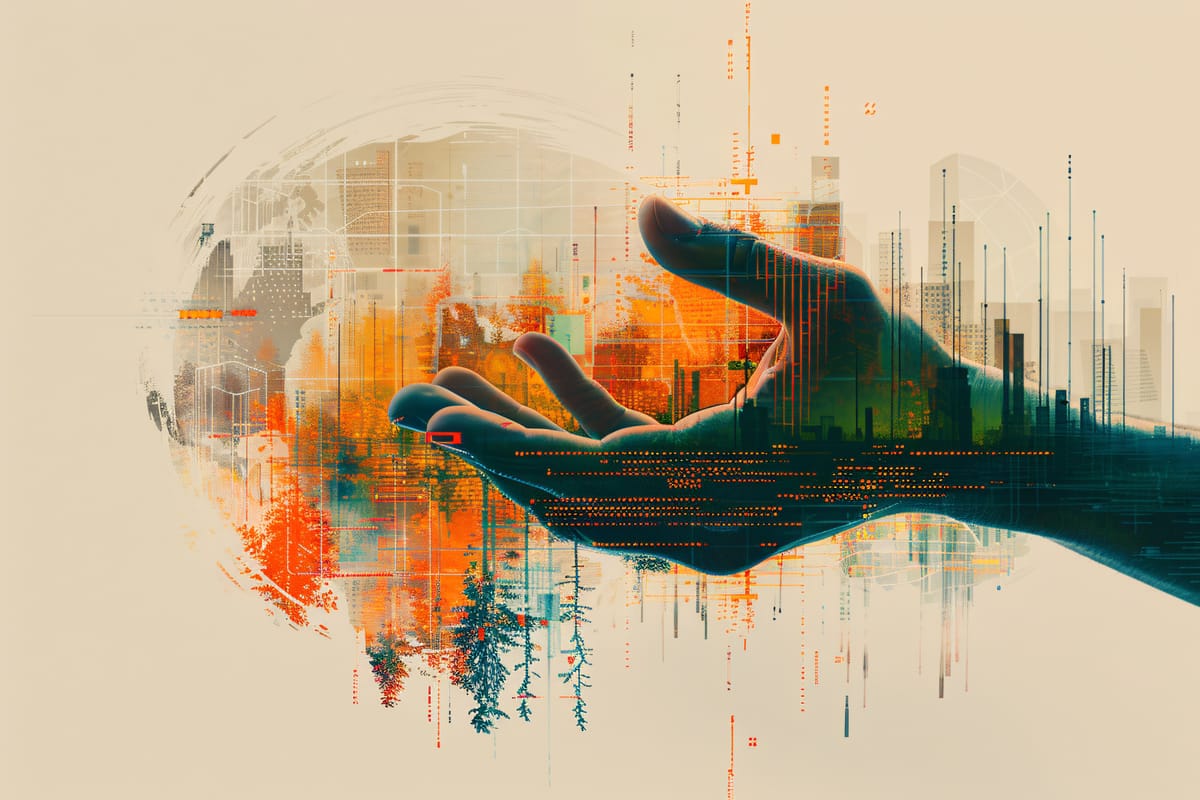The Agentic Economy is Here
Now, AI agents are pushing the next frontier: the Agentic economy, one where AI agents are automating tasks and autonomously shaping markets, executing financial transactions, and self-governing their economic incentives.

Economic paradigm shifts do not gently go into the night. They rupture explosively. Quick history lesson: The agricultural revolution redefined subsistence. The industrial revolution mechanized production. The information revolution digitized value exchange.
Now, AI agents are pushing the next frontier: the Agentic economy, one where AI agents are automating tasks and autonomously shaping markets, executing financial transactions, and self-governing their economic incentives.
AI-driven market makers, arbitrage bots, and supply chain optimizers are already embedded in global markets. But for agents to operate freely, permissionlessly, and trustlessly, they need an open, decentralized framework. Gaia is that foundation. More than a platform, Gaia offers the infrastructure that allows agents to transact, learn, and evolve without centralized chokepoints.
Automation once meant streamlining repetitive work, but we've come a long way from the Jacquard loom, which automated weaving with punch cards in 1804. Agents don’t just execute, they decide. Consider the role of AI in decentralized finance (DeFi): bots trading across protocols, dynamically adjusting liquidity positions, and arbitraging inefficiencies in milliseconds.
Fortunately, these agents are not limited to finance. Let's look at a few use cases:
• Supply Chains: Agents are emerging in logistics, rerouting supply chains in response to market shocks in real time.
• Insurance: AI underwriters assess risk and issue data-driven policies.
• Manufacturing: AI-driven robots handle entire assembly lines, improving efficiency without compromising quality.
• Customer service: Agents manage inquiries, allowing human staff to address more complex issues while safeguarding their mental health.
• Healthcare: AI assists in data analysis and patient monitoring, freeing medical professionals to concentrate on patient care.
The Agentic Economy is no longer a niche phenomenon, it’s a multi-billion-dollar shift in financial infrastructure.
Like traditional economies, an agentic economy depends on seamless interoperability across protocols, industries, and governance frameworks. Agents are forming an interconnected ecosystem, exchanging data, refining decision models, and coordinating value flows. This extends across industries: optimizing freight logistics, automating legal contracts, and managing capital without intermediaries. Building this ecosystem truly takes a global effort.
Web3’s promise is decentralized self-sufficiency, but networks don’t sustain themselves. Until now, smart contracts, DAOs, and liquidity pools have all depended on human management. Agents, however, are poised to assume governance roles, optimizing these systems in real time without human intervention.
A decentralized exchange where agents autonomously rebalance liquidity, optimize slippage, and adjust interest rates is inevitable. Protocols like Uniswap have long used automated market makers, and lending protocols dynamically adjust rates based on utilization. Agents will govern entire networks, shifting human involvement from daily operations to strategic oversight.
Autonomy demands accountability. Agents acting as market participants introduce a fundamental challenge: trust. An AI-driven economy without verification mechanisms is an attack surface waiting to be exploited. Gaia preempts this by embedding cryptographic proofs, decentralized verification, and open-access validation into its infrastructure.
Consider AI-generated misinformation. Financial markets manipulated by synthetic narratives, political discourse distorted by deepfakes. Without decentralized trust systems, AI becomes a liability rather than an asset. Gaia’s framework ensures that agents remain auditable, resistant to manipulation, and governed by transparent validation mechanisms.
This shift demands new economic structures. Take a look at AgentFi, where agents maintain on-chain reputations, access capital, and engage in decentralized governance. Picture an AI-driven hedge fund, autonomously staking assets, voting in DAOs, and optimizing yield strategies. And it's already happening.
Gaia enables decentralized agents to function autonomously, securely, and at scale. We ensure that no single entity dictates the future of agentic AI because decentralization is at the core of everything we do. By removing barriers to entry, Gaia is driving participation in this Agentic Economy, allowing enterprises, builders, and individuals to harness the full potential of autonomous agents.
The shift will be exponential. The boundary between human and machine-driven economic activity is already blurring. The real question isn’t whether agents will underpin the next economic era—it’s how fast this transition will unfold.
Gaia is ensuring that when it does, the foundation is open, decentralized, and unstoppable.


